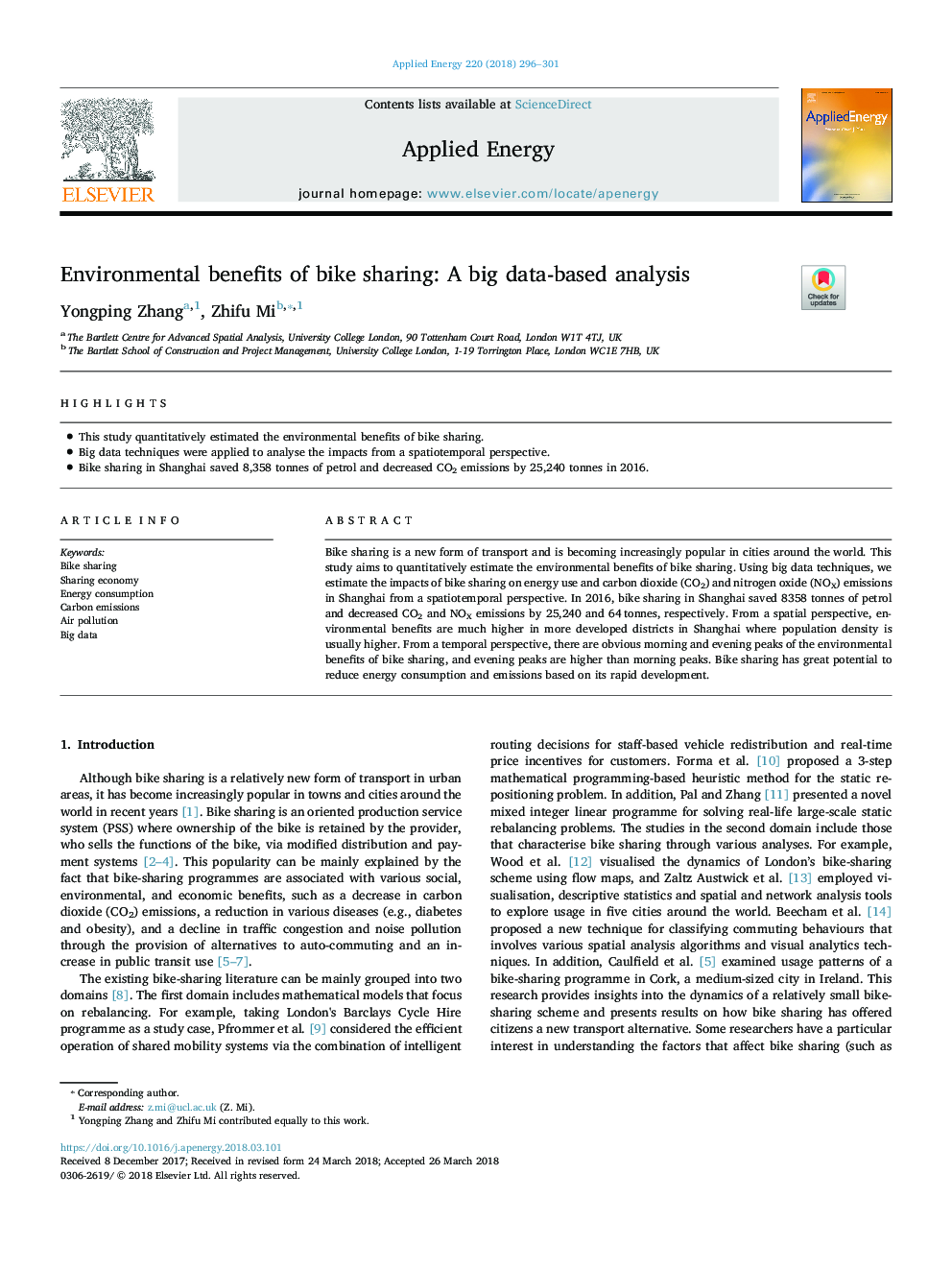| Article ID | Journal | Published Year | Pages | File Type |
|---|---|---|---|---|
| 6680379 | Applied Energy | 2018 | 6 Pages |
Abstract
Bike sharing is a new form of transport and is becoming increasingly popular in cities around the world. This study aims to quantitatively estimate the environmental benefits of bike sharing. Using big data techniques, we estimate the impacts of bike sharing on energy use and carbon dioxide (CO2) and nitrogen oxide (NOX) emissions in Shanghai from a spatiotemporal perspective. In 2016, bike sharing in Shanghai saved 8358 tonnes of petrol and decreased CO2 and NOX emissions by 25,240 and 64â¯tonnes, respectively. From a spatial perspective, environmental benefits are much higher in more developed districts in Shanghai where population density is usually higher. From a temporal perspective, there are obvious morning and evening peaks of the environmental benefits of bike sharing, and evening peaks are higher than morning peaks. Bike sharing has great potential to reduce energy consumption and emissions based on its rapid development.
Related Topics
Physical Sciences and Engineering
Energy
Energy Engineering and Power Technology
Authors
Yongping Zhang, Zhifu Mi,
